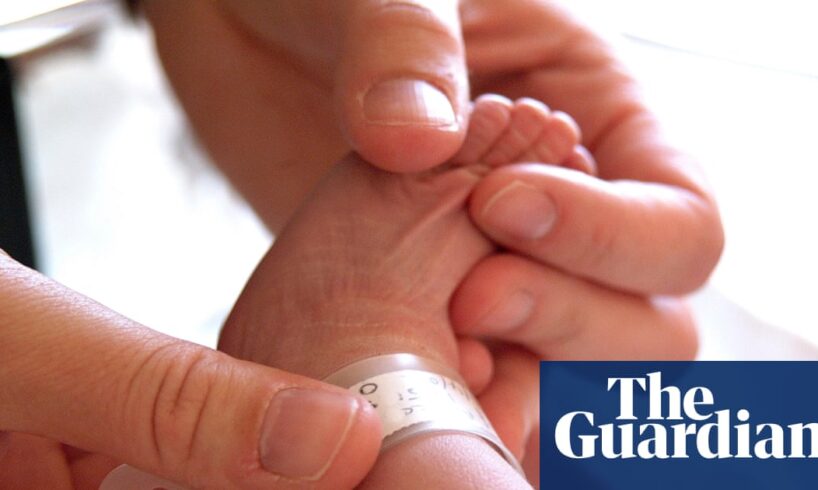
More than half of women having a baby in Britain now do so with the help of medical intervention, an audit of NHS maternity care has revealed.
Of the 592,594 births that took place in 2023, 50.6% involved either a caesarean section or the use of instruments such as forceps or a ventouse suction cup.
Experts said the rise in medically assisted deliveries represented a “major shift” driven by births becoming more complicated in recent years, partly because more older or obese women are having babies.
The increasing regularity of medical intervention is largely down to the sharp rise in caesarean births, in which the baby is delivered during an operation.
The proportion of babies born that way across England, Scotland and Wales has risen from 25% in 2015-16 to 38.9% in 2023, according to the National Maternity and Perinatal Audit (NMPA), which is a collaboration between childbirth doctors, midwives and academics.
The proportion of births that were induced has also gone up during that time, though less dramatically, from 29.3% to 33.9%. But the proportion using forceps or ventouse cups has fallen over the same period, from 12.3% to 11.1%.
Dr Shuby Puthussery, an associate professor in maternal and child health at the University of Bedfordshire, said: “It’s worrying that over 50% of births involved medical intervention. But it’s linked to a broader demographic trend.
“We see a rather worrying trend of births to [older] women increasing year by year, along with significant increases in factors such as obesity, maternal diabetes and pre-existing medical conditions, leading to more complex medically assisted births, especially among women from ethnic minority groups and those living in poverty.”
Better access to antenatal care, especially scans, would help detect problems earlier and reduce the risk of mothers needing medical assistance while in labour, she said.
Prof Asma Khalil, the vice-president of the Royal College of Obstetricians and Gynaecologists (RCOG), disagreed that a caesarean increases the risk faced by women.
“Caesarean births are common and the steady increase isn’t necessarily a cause for concern as long as future services are well-prepared to adapt and ensure they have the right staffing, training and facilities to manage increasingly complex births.
“The caesarean birthrate in England has steadily increased over the past decade. One factor in this is the increasing proportion of pregnancies that are complex.
“We are seeing national rising rates of obesity and people choosing to have children at a later stage in their life, both of which can increase the chance of complications.”
The report said: “There are risks and benefits to both vaginal and caesarean modes of birth, and the reasons for choosing a caesarean birth, planned or unplanned, can include physical or psychological benefits.
“While unnecessary interventions may lead to adverse outcomes, it is important to note that there is no ‘ideal’ rate for births by caesarean.”
In 2023, a total of 23.1% of births were emergency caesareans and 16.4% were planned.
The NMPA is a joint piece of work by the Royal College of Obstetricians and Gynaecologists, Royal College of Midwives, Royal College of Paediatrics and Child Health and researchers from the London School of Hygiene & Tropical Medicine.
It confirmed that fertility rates had declined sharply over recent years. The number of births in England and Wales has been falling steadily since 2012, and 2023 saw the lowest number since 1977. The fertility rate in England and Wales is now 1.44 children per woman.
Scotland recorded its lowest-ever total fertility in 2023. The rate there has fallen to just 1.3 babies per woman.
NHS England was asked for comment.





